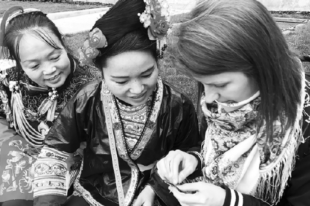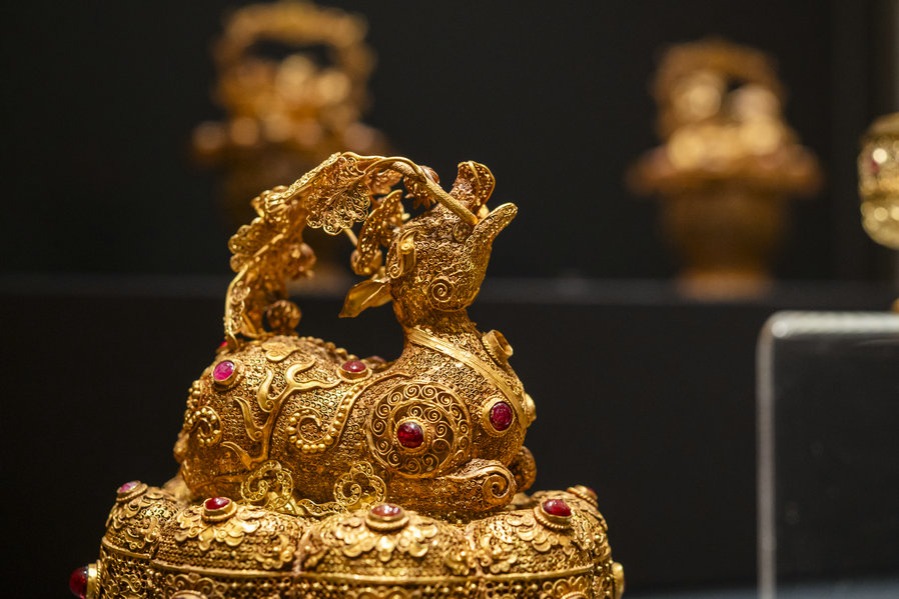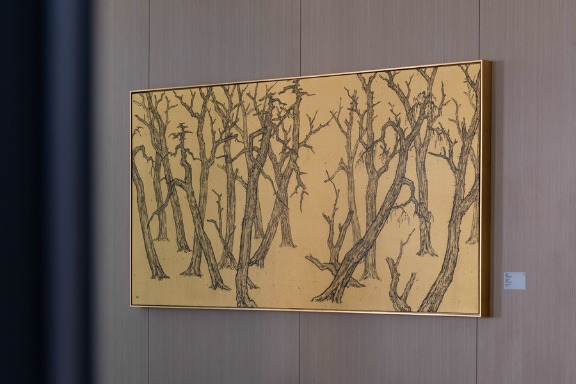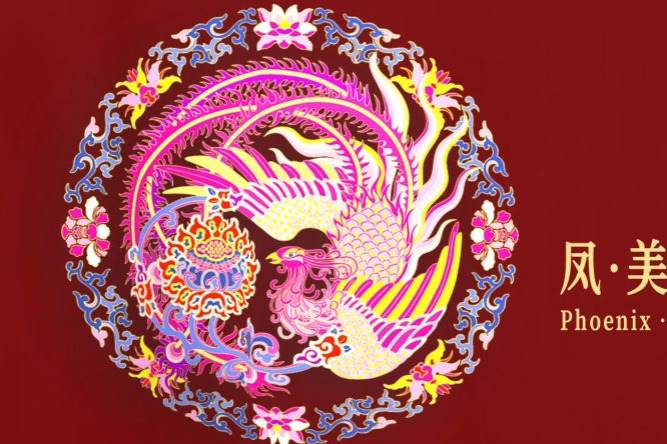A success story weaved out of true dedication


The Dong ethnic group is one of China's 55 ethnic minorities, with a population of less than three million, mainly living in south China. The group is renowned for its traditional embroidery. Wei started to learn the craft when she was very little, and has honed her skills over decades. After years of intense and strict training, Wei became an inheritor of embroidery at the age of 40. For Wei, learning the craft is a family tradition and almost all her female family members have mastered the intricate skills involved.
Phoenixes, dragons and flowers are common motifs featured in folk art, which are reproduced on embroidered products, she said. Artworks on display sometimes take three to five years to accomplish. Yet due to language and culture barriers, these handicrafts were not well promoted to the outside world. During the 1980s, rapid urban economic development led to a large number of young people leaving the village for jobs in cities outside of Guangxi.
"But as an embroidery inheritor, if I left the village, the craft would not be handed down to the next generation, and I decided to stay with it after some hesitation," she said.
"Only by selling our embroideries to more people outside will the craft be more widely appreciated," she said.
In recent years, the Women's Federation of Liuzhou has been actively organizing local women to use their skill to earn an income and several embroidery bases have been set up. Today, embroidery has become a more important approach to improving people's lives.





































